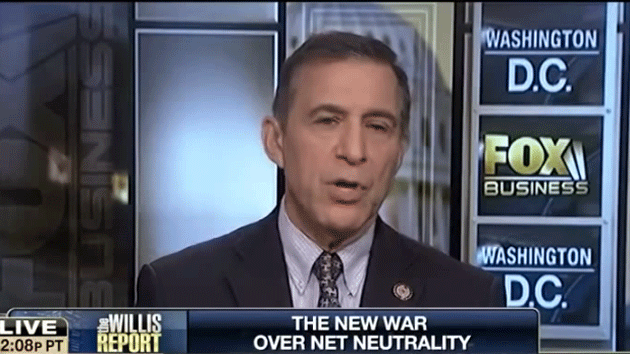FCC chairman Tom Wheeler is now officially on board supporting the strongest possible version of net neutrality. Here’s his first-person statement:
Originally, I believed that the FCC could assure internet openness through a determination of “commercial reasonableness” under Section 706 of the Telecommunications Act of 1996. While a recent court decision seemed to draw a roadmap for using this approach, I became concerned that this relatively new
concept might, down the road, be interpreted to mean what is reasonable for commercial interests, not consumers.
That is why I am proposing that the FCC use its Title II authority to implement and enforce open internet protections.
Using this authority, I am submitting to my colleagues the strongest open internet protections ever proposed by the FCC. These enforceable, bright-line rules will ban paid prioritization, and the blocking and throttling of lawful content and services. I propose to fully apply—for the first time ever—those bright-line rules to mobile broadband. My proposal assures the rights of internet users to go where they want, when they want, and the rights of innovators to introduce new products without asking anyone’s permission.
Title II is the law that currently regulates telephone networks as common carriers. Applying this to broadband internet gives the FCC extremely strong powers to guarantee free and equal internet access to everyone, just as they currently do for telcos.
The argument against doing this is that Title II has a lot of baggage designed specifically for telcos—baggage that makes sense for telephones but not for internet connections. Wheeler recognizes this, and says that he plans to “modernize” Title II. Under his proposal, for example, “there will be no rate regulation, no tariffs, no last-mile unbundling.”
This is a huge win for net neutrality advocates. Nonetheless, it would be a bigger win if it spurred Republicans to take seriously a compromise bill that regulates broadband legislatively. Title II may be a big stick, but it’s not necessarily a permanent one. Aside from the fact that it’s open to court challenges, it could also be eliminated by a future FCC just as easily as it gets created by today’s FCC. If a Republican becomes president in 2016 and appoints a majority Republican FCC, Wheeler’s proposal could get tossed out with a simple vote of the five commissioners.
Either way, though, this is a welcome move. Either we get a modernized Title II, or else Wheeler’s proposal lights a fire under Sen. John Thune that produces a compromise solution from Congress. So far Democrats haven’t been especially open to working with Thune, but I hope they change their minds. Maybe negotiations would go nowhere. If so, nothing is lost and Title II becomes the law of the land. But there’s always the chance that with Title II as a backstop, negotiations could produce something genuinely useful. As with all compromises, net neutrality advocates would almost certainly lose some things they value. Republicans wouldn’t get everything they want either. But both sides—as well as the broadband industry itself—would gain permanence, and that’s worth something.
















